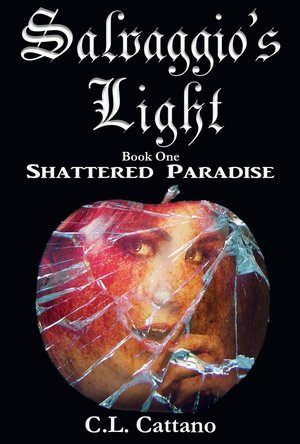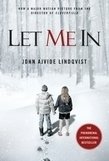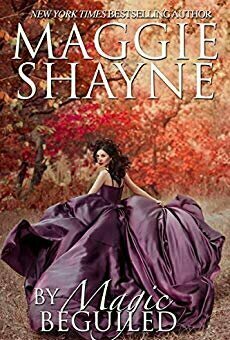Search

Disloyal
Book
This book almost didn’t see the light of day as government officials tried to bar its publication....

Starboard (Voyagers #2)
Book
Dylan: I’ve lived my adult life under the Hollywood spotlight, but no one really sees who I am....
Contemporary MM Romance

The Cockpit (Voyagers #3)
Book
Rafe: I’ve given up my modeling career to work on the other side of the lens. And touring the...
Contemporary MM Romance
SA
Shadows Across the Moon: Outlaws, Freaks, Shamans and the Making of Ibiza Clubland
Helen Donlon and Richie Hawtin
Book
Once a fabled pirate garrison, the Balearic island of Ibiza has been colonised and continually...
Acanthea Grimscythe (300 KP) rated Let the Right One In in Books
May 16, 2018
Several years ago, I had the pleasure (I think?) of watching the American remake of the film, Let the Right One In, which was titled Let Me In. I don’t remember any of it -only that I had found it interesting at the time. Undoubtedly, it had something to do with the fact that, during those years, I had an obsession with vampires. In fact, I gobbled up the Twilight books around then, and yes I am ashamed to admit that. Let the Right One In never crossed my mind again after that, until I received a box of books for free and found a copy of the Thomas Dunne Books translation inside it. Remembering the movie vaguely, and knowing the original version is among my boyfriend’s favorite films, I decided to give it a read and, once again, I am not in the least bit disappointed. I’m not sure if it’s a difference in what Americans find to be taboo in comparison to Swedish folk or what, but between John Ajvide Lindqvist and Stieg Larsson, I think I’m ready to delve deeper into Scandinavian novels!
Lindqvist has created for readers a completely deplorable cast of characters, ranging from Eli, the child, to her caretaker, Håkan Bengtsson. These characters aren’t hate-worthy in the same manner as Gone Girl‘s Amy Dunne, but rather in the way that they simply are. I won’t go too much into the details behind why I find the cast of this book to be unsavory, because I feel that just about anything I could say about the characters would, in one form or another, spoil the book; these characters and their flaws, which are bountiful, provide the book with so many unexpected twists and turns that just about anything that could be said might reveal something vital to the plot. Except for my favorite character, which, oddly enough, is Gösta. This may or may not have something to do with the fact that, like Gösta, I adore cats and it is extremely difficult for me to not want to take a stray in. (My boyfriend and I have too many, and I love them more than the entire world!)
The plot takes place over the course of about three weeks, beginning near the last week of October and ending on Friday, November 13. For a book of about five-hundred pages, that’s quite a few days to cover and often, that expanse of time, when it is written as detailed as Lindqvist has penned it, can seem like it simply drags on – that is not the case here. As I read, it felt more like a few days than several weeks, largely because the plot is fast paced and constantly moving. Because there isn’t a lot of exposition, there isn’t really much to slow the story down. Told from alternating perspectives, readers are given several different points of view of what’s going on, and from there it is relatively easy to come to your own conclusions regarding the story’s events as well as the behaviors of the various characters. Those I loathed, others might feel pity for, and vice versa.
Let the Right One In is a vampire novel, as I’ve alluded to earlier in this review; however, Lindqvist does not approach the idea of vampires in the same method that many books do presently. These are not romanticized vampires, but rather monsters. Horrible, bloodthirsty creatures that will rip out your throat, not sparkle – that’s what Lindqvist’s vampires are. This fact alone scores extra points with me, because I prefer vampires as the terrors they are meant to be, rather than the glorified, dark lovers that plague most contemporary literature.
My only gripe with this translation of Let the Right One In deals largely with its flow. While the story itself is excellent and the characters dynamic, the translation seemed to be a bit on the rough side. I do not speak Swedish. If I did, I wouldn’t have a use for the translated version of the story. That said, I know absolutely nothing of the language. Given that my major is in Creative Writing and that I have taken Linguistic courses, I do know that some languages have no tense – at least, not in the way that those of us that speak English view it. That said, there are many times in the translation that I was reading where the tense seemed to switch randomly, and I do not know if this was intentional or not. It was not an issue that I encountered while reading The Girl with the Dragon Tattoo though, so it’s a bit hard for me to be forgiving about it.
This book was definitely worth the read, and I’m hoping that I’ll get a chance to watch the original film adaptation in the future – my boyfriend might have it, actually. I should check!
Lindqvist has created for readers a completely deplorable cast of characters, ranging from Eli, the child, to her caretaker, Håkan Bengtsson. These characters aren’t hate-worthy in the same manner as Gone Girl‘s Amy Dunne, but rather in the way that they simply are. I won’t go too much into the details behind why I find the cast of this book to be unsavory, because I feel that just about anything I could say about the characters would, in one form or another, spoil the book; these characters and their flaws, which are bountiful, provide the book with so many unexpected twists and turns that just about anything that could be said might reveal something vital to the plot. Except for my favorite character, which, oddly enough, is Gösta. This may or may not have something to do with the fact that, like Gösta, I adore cats and it is extremely difficult for me to not want to take a stray in. (My boyfriend and I have too many, and I love them more than the entire world!)
The plot takes place over the course of about three weeks, beginning near the last week of October and ending on Friday, November 13. For a book of about five-hundred pages, that’s quite a few days to cover and often, that expanse of time, when it is written as detailed as Lindqvist has penned it, can seem like it simply drags on – that is not the case here. As I read, it felt more like a few days than several weeks, largely because the plot is fast paced and constantly moving. Because there isn’t a lot of exposition, there isn’t really much to slow the story down. Told from alternating perspectives, readers are given several different points of view of what’s going on, and from there it is relatively easy to come to your own conclusions regarding the story’s events as well as the behaviors of the various characters. Those I loathed, others might feel pity for, and vice versa.
Let the Right One In is a vampire novel, as I’ve alluded to earlier in this review; however, Lindqvist does not approach the idea of vampires in the same method that many books do presently. These are not romanticized vampires, but rather monsters. Horrible, bloodthirsty creatures that will rip out your throat, not sparkle – that’s what Lindqvist’s vampires are. This fact alone scores extra points with me, because I prefer vampires as the terrors they are meant to be, rather than the glorified, dark lovers that plague most contemporary literature.
My only gripe with this translation of Let the Right One In deals largely with its flow. While the story itself is excellent and the characters dynamic, the translation seemed to be a bit on the rough side. I do not speak Swedish. If I did, I wouldn’t have a use for the translated version of the story. That said, I know absolutely nothing of the language. Given that my major is in Creative Writing and that I have taken Linguistic courses, I do know that some languages have no tense – at least, not in the way that those of us that speak English view it. That said, there are many times in the translation that I was reading where the tense seemed to switch randomly, and I do not know if this was intentional or not. It was not an issue that I encountered while reading The Girl with the Dragon Tattoo though, so it’s a bit hard for me to be forgiving about it.
This book was definitely worth the read, and I’m hoping that I’ll get a chance to watch the original film adaptation in the future – my boyfriend might have it, actually. I should check!
Acanthea Grimscythe (300 KP) rated Let Me In in Books
May 16, 2018
Several years ago, I had the pleasure (I think?) of watching the American remake of the film, Let the Right One In, which was titled Let Me In. I don’t remember any of it -only that I had found it interesting at the time. Undoubtedly, it had something to do with the fact that, during those years, I had an obsession with vampires. In fact, I gobbled up the Twilight books around then, and yes I am ashamed to admit that. Let the Right One In never crossed my mind again after that, until I received a box of books for free and found a copy of the Thomas Dunne Books translation inside it. Remembering the movie vaguely, and knowing the original version is among my boyfriend’s favorite films, I decided to give it a read and, once again, I am not in the least bit disappointed. I’m not sure if it’s a difference in what Americans find to be taboo in comparison to Swedish folk or what, but between John Ajvide Lindqvist and Stieg Larsson, I think I’m ready to delve deeper into Scandinavian novels!
Lindqvist has created for readers a completely deplorable cast of characters, ranging from Eli, the child, to her caretaker, Håkan Bengtsson. These characters aren’t hate-worthy in the same manner as Gone Girl‘s Amy Dunne, but rather in the way that they simply are. I won’t go too much into the details behind why I find the cast of this book to be unsavory, because I feel that just about anything I could say about the characters would, in one form or another, spoil the book; these characters and their flaws, which are bountiful, provide the book with so many unexpected twists and turns that just about anything that could be said might reveal something vital to the plot. Except for my favorite character, which, oddly enough, is Gösta. This may or may not have something to do with the fact that, like Gösta, I adore cats and it is extremely difficult for me to not want to take a stray in. (My boyfriend and I have too many, and I love them more than the entire world!)
The plot takes place over the course of about three weeks, beginning near the last week of October and ending on Friday, November 13. For a book of about five-hundred pages, that’s quite a few days to cover and often, that expanse of time, when it is written as detailed as Lindqvist has penned it, can seem like it simply drags on – that is not the case here. As I read, it felt more like a few days than several weeks, largely because the plot is fast paced and constantly moving. Because there isn’t a lot of exposition, there isn’t really much to slow the story down. Told from alternating perspectives, readers are given several different points of view of what’s going on, and from there it is relatively easy to come to your own conclusions regarding the story’s events as well as the behaviors of the various characters. Those I loathed, others might feel pity for, and vice versa.
Let the Right One In is a vampire novel, as I’ve alluded to earlier in this review; however, Lindqvist does not approach the idea of vampires in the same method that many books do presently. These are not romanticized vampires, but rather monsters. Horrible, bloodthirsty creatures that will rip out your throat, not sparkle – that’s what Lindqvist’s vampires are. This fact alone scores extra points with me, because I prefer vampires as the terrors they are meant to be, rather than the glorified, dark lovers that plague most contemporary literature.
My only gripe with this translation of Let the Right One In deals largely with its flow. While the story itself is excellent and the characters dynamic, the translation seemed to be a bit on the rough side. I do not speak Swedish. If I did, I wouldn’t have a use for the translated version of the story. That said, I know absolutely nothing of the language. Given that my major is in Creative Writing and that I have taken Linguistic courses, I do know that some languages have no tense – at least, not in the way that those of us that speak English view it. That said, there are many times in the translation that I was reading where the tense seemed to switch randomly, and I do not know if this was intentional or not. It was not an issue that I encountered while reading The Girl with the Dragon Tattoo though, so it’s a bit hard for me to be forgiving about it.
This book was definitely worth the read, and I’m hoping that I’ll get a chance to watch the original film adaptation in the future – my boyfriend might have it, actually. I should check!
Lindqvist has created for readers a completely deplorable cast of characters, ranging from Eli, the child, to her caretaker, Håkan Bengtsson. These characters aren’t hate-worthy in the same manner as Gone Girl‘s Amy Dunne, but rather in the way that they simply are. I won’t go too much into the details behind why I find the cast of this book to be unsavory, because I feel that just about anything I could say about the characters would, in one form or another, spoil the book; these characters and their flaws, which are bountiful, provide the book with so many unexpected twists and turns that just about anything that could be said might reveal something vital to the plot. Except for my favorite character, which, oddly enough, is Gösta. This may or may not have something to do with the fact that, like Gösta, I adore cats and it is extremely difficult for me to not want to take a stray in. (My boyfriend and I have too many, and I love them more than the entire world!)
The plot takes place over the course of about three weeks, beginning near the last week of October and ending on Friday, November 13. For a book of about five-hundred pages, that’s quite a few days to cover and often, that expanse of time, when it is written as detailed as Lindqvist has penned it, can seem like it simply drags on – that is not the case here. As I read, it felt more like a few days than several weeks, largely because the plot is fast paced and constantly moving. Because there isn’t a lot of exposition, there isn’t really much to slow the story down. Told from alternating perspectives, readers are given several different points of view of what’s going on, and from there it is relatively easy to come to your own conclusions regarding the story’s events as well as the behaviors of the various characters. Those I loathed, others might feel pity for, and vice versa.
Let the Right One In is a vampire novel, as I’ve alluded to earlier in this review; however, Lindqvist does not approach the idea of vampires in the same method that many books do presently. These are not romanticized vampires, but rather monsters. Horrible, bloodthirsty creatures that will rip out your throat, not sparkle – that’s what Lindqvist’s vampires are. This fact alone scores extra points with me, because I prefer vampires as the terrors they are meant to be, rather than the glorified, dark lovers that plague most contemporary literature.
My only gripe with this translation of Let the Right One In deals largely with its flow. While the story itself is excellent and the characters dynamic, the translation seemed to be a bit on the rough side. I do not speak Swedish. If I did, I wouldn’t have a use for the translated version of the story. That said, I know absolutely nothing of the language. Given that my major is in Creative Writing and that I have taken Linguistic courses, I do know that some languages have no tense – at least, not in the way that those of us that speak English view it. That said, there are many times in the translation that I was reading where the tense seemed to switch randomly, and I do not know if this was intentional or not. It was not an issue that I encountered while reading The Girl with the Dragon Tattoo though, so it’s a bit hard for me to be forgiving about it.
This book was definitely worth the read, and I’m hoping that I’ll get a chance to watch the original film adaptation in the future – my boyfriend might have it, actually. I should check!
Hazel (1853 KP) rated Blood, Ink & Fire in Books
Dec 14, 2018
<i>This eBook was provided by the publisher via NetGalley in exchange for an honest review </i>
Imagine a world without books… In this dystopian novel by Ashley Mansour, that is exactly what the world is like. <i>Blood, Ink & Fire</i> is set in the future where not only are books non-existent, it is illegal to know how to read. Noelle Hartley has grown up in the United Vales of Fell, where a computer controls what she hears, sees and feels by showing her a constant stream of artificial images. But, Noelle knows she is different. Unlike her parents she is able to question the meanings of the pictures, and when a rebellious group hacks into the system, forcing words onto their screens, Noelle is able to read them.
With the help of her blind friend, John, Noelle and her grandfather escape from this controlling society and find people living on the outside who are against what Fell is doing to humanity. Noelle learns facts about her grandfather’s past that she could never have imagined as well as discovering secrets about herself. Noelle is a reader and is told by members of the past generations that it is not true that all the books were destroyed. There are nine volumes hidden in various locations, which when brought together will become the key to unlock the knowledge that has been banned for so long. It is Noelle’s job to find them.
It is scary how plausible this post-literacy world is. Mansour includes three quotes before the beginning of the novel from the years 1987, 2008 and 2014 that put forward fears that books and our ability to read is becoming less important with the advancement of the internet. Humanity is becoming less intelligent and more controlled by what they see on their computers. Brains do not need to think as much as the answers are all online. Even whilst reading the narrative, there are aspects that are frighteningly familiar. The idea of a continuous stream of images is similar to current social medias such as Tumblr and Pinterest, where users feel compelled to scroll through the entire feed to view all of the latest posts.
There is however a part of this novel that is entirely fiction and would be impossible to ever occur. One of the characters is a bit of an enigma, a piece of the past inhabiting a human body. Literacy personified. This causes the storyline to be less credible, thus readers will view this as a piece of fiction (which it is) and be less likely to take the warning about the Internet changing people’s brains to heart.
<i>Blood, Ink & Fire</i> is a really fascinating story that is exciting from start to finish. It is full of clever ideas, making it unique from other books in this genre. It is also evident that Mansour undertook a vast amount of research, particularly of Shakespeare’s plays, as there was a reference to the playwright and his work in nearly every chapter, from character names to plots. Those familiar with Shakespeare will benefit from these allusions as they make the narrative flow effectively from beginning to end. It is, however, possible to read and enjoy without any prior knowledge of Shakespeare – you may even learn something new from reading this book.
I highly recommend <i>Blood, Ink & Fire</i> to book lovers and dystopian fiction fans. It feels similar in style to <i>The Darkest Minds</i> trilogy by Alexander Bracken, and with series such as <i>The Hunger Games</i> and <i>Divergent</i> being brought to the big screen, this new young adult book is bound to be popular. This was Ashley Mansour’s debut novel and I am keen to discover what she will write next.
Imagine a world without books… In this dystopian novel by Ashley Mansour, that is exactly what the world is like. <i>Blood, Ink & Fire</i> is set in the future where not only are books non-existent, it is illegal to know how to read. Noelle Hartley has grown up in the United Vales of Fell, where a computer controls what she hears, sees and feels by showing her a constant stream of artificial images. But, Noelle knows she is different. Unlike her parents she is able to question the meanings of the pictures, and when a rebellious group hacks into the system, forcing words onto their screens, Noelle is able to read them.
With the help of her blind friend, John, Noelle and her grandfather escape from this controlling society and find people living on the outside who are against what Fell is doing to humanity. Noelle learns facts about her grandfather’s past that she could never have imagined as well as discovering secrets about herself. Noelle is a reader and is told by members of the past generations that it is not true that all the books were destroyed. There are nine volumes hidden in various locations, which when brought together will become the key to unlock the knowledge that has been banned for so long. It is Noelle’s job to find them.
It is scary how plausible this post-literacy world is. Mansour includes three quotes before the beginning of the novel from the years 1987, 2008 and 2014 that put forward fears that books and our ability to read is becoming less important with the advancement of the internet. Humanity is becoming less intelligent and more controlled by what they see on their computers. Brains do not need to think as much as the answers are all online. Even whilst reading the narrative, there are aspects that are frighteningly familiar. The idea of a continuous stream of images is similar to current social medias such as Tumblr and Pinterest, where users feel compelled to scroll through the entire feed to view all of the latest posts.
There is however a part of this novel that is entirely fiction and would be impossible to ever occur. One of the characters is a bit of an enigma, a piece of the past inhabiting a human body. Literacy personified. This causes the storyline to be less credible, thus readers will view this as a piece of fiction (which it is) and be less likely to take the warning about the Internet changing people’s brains to heart.
<i>Blood, Ink & Fire</i> is a really fascinating story that is exciting from start to finish. It is full of clever ideas, making it unique from other books in this genre. It is also evident that Mansour undertook a vast amount of research, particularly of Shakespeare’s plays, as there was a reference to the playwright and his work in nearly every chapter, from character names to plots. Those familiar with Shakespeare will benefit from these allusions as they make the narrative flow effectively from beginning to end. It is, however, possible to read and enjoy without any prior knowledge of Shakespeare – you may even learn something new from reading this book.
I highly recommend <i>Blood, Ink & Fire</i> to book lovers and dystopian fiction fans. It feels similar in style to <i>The Darkest Minds</i> trilogy by Alexander Bracken, and with series such as <i>The Hunger Games</i> and <i>Divergent</i> being brought to the big screen, this new young adult book is bound to be popular. This was Ashley Mansour’s debut novel and I am keen to discover what she will write next.
Kara Skinner (332 KP) rated By Magic Beguiled in Books
Sep 10, 2019
Many a man has died of longing for one such as her. For her skin has the flavor of honey which contains a magic all its own. Once a man’s lips taste her nectar, he is bound to her for all his days. Be forewarned, then, for her spell cannot be broken. Look for the sign of the cradle moon above the mound of Venus. Be it pale, you might yet escape with our heart and mind intact. But be it crimson, she is of royal blood, and too strong for a mortal man’s resistance.
Brigit Malone can paint anything she sees, and uses that skill to get herself and her best friend, Razor Face Malone, off the streets. Living the straight life is good until an old enemy kidnaps Raze and demands Brigit forge a privately owned painting, switch the fake for the original, and deliver it. But that painting is the prize possession of Adam Reid, a good man betrayed one too many times. Not only that, but Brigit has seen him before in her dreams. Hurting him is unbearable, but so is leaving Raze in danger.
Neither of them realize the images in the painting are actually a message from the twin sister Brigit doesn’t know she has, a message calling her back to the enchanted kingdom of Rush, where the two half fay twins are destined to put down the usurping Dark Prince Tristan and restore peace to their home, the distant land of Rush.
This book was just what I needed. It’s an epic adventure with romance, deception, and magic. Adam Reid is breath-takingly sexy, and Brigit is wonderfully strong and graceful, like a fairy should be.
However, Adam isn’t inclined to believe in love, let alone fairies. After his terrible childhood with an abusive father, his money was stolen by his ex wife, leaving him a jaded and cynical man about the world and very distrustful of humans. His sadness translates really well on the page and it’s really easy to feel for him, even when he’s complaining about only being able to afford a once-a-week cleaning service instead of a live-in maid. Despite his crankiness and need to be a cynic, you can’t help but want him to find true love and happiness.
Brigit is similarly disillusioned about life. After living homeless on the streets for several years, she succumbed to be an art forger to care for Raze, an old man who had saved her from a fire, and acted like a father to her. Now she was struggling to put the past behind her by running a florist shop. Unfortunately she will have no choice but to go back.to being an art forger to save Raze from one of her old enemies. And this means she needs to rob Adam Reid of the painting.
Adam’s first impression of Brigit is well illustrated and on point with the magic ability of fairies, especially those of royal blood.
She was incredible, and because her eyes sucked him in like quicksand, and because he had the oddest feeling that he knew her. Or should know her.
I love that this story isn’t insta-love, despite the Lure that Brigit gives off, magic that makes men fall in love with her. Yes, Adam does obsess with her a bit at first, but there is so much distrust in him that he doesn’t fall to her charms too quickly. And the plot is fantastic, right up to the heart-wrenching climax. Even though there’s very little magic and supernatural elements in the first book of this duo, it’s still there. Adult fantasy and fairytale lovers will enjoy this book as much as I did.
Brigit Malone can paint anything she sees, and uses that skill to get herself and her best friend, Razor Face Malone, off the streets. Living the straight life is good until an old enemy kidnaps Raze and demands Brigit forge a privately owned painting, switch the fake for the original, and deliver it. But that painting is the prize possession of Adam Reid, a good man betrayed one too many times. Not only that, but Brigit has seen him before in her dreams. Hurting him is unbearable, but so is leaving Raze in danger.
Neither of them realize the images in the painting are actually a message from the twin sister Brigit doesn’t know she has, a message calling her back to the enchanted kingdom of Rush, where the two half fay twins are destined to put down the usurping Dark Prince Tristan and restore peace to their home, the distant land of Rush.
This book was just what I needed. It’s an epic adventure with romance, deception, and magic. Adam Reid is breath-takingly sexy, and Brigit is wonderfully strong and graceful, like a fairy should be.
However, Adam isn’t inclined to believe in love, let alone fairies. After his terrible childhood with an abusive father, his money was stolen by his ex wife, leaving him a jaded and cynical man about the world and very distrustful of humans. His sadness translates really well on the page and it’s really easy to feel for him, even when he’s complaining about only being able to afford a once-a-week cleaning service instead of a live-in maid. Despite his crankiness and need to be a cynic, you can’t help but want him to find true love and happiness.
Brigit is similarly disillusioned about life. After living homeless on the streets for several years, she succumbed to be an art forger to care for Raze, an old man who had saved her from a fire, and acted like a father to her. Now she was struggling to put the past behind her by running a florist shop. Unfortunately she will have no choice but to go back.to being an art forger to save Raze from one of her old enemies. And this means she needs to rob Adam Reid of the painting.
Adam’s first impression of Brigit is well illustrated and on point with the magic ability of fairies, especially those of royal blood.
She was incredible, and because her eyes sucked him in like quicksand, and because he had the oddest feeling that he knew her. Or should know her.
I love that this story isn’t insta-love, despite the Lure that Brigit gives off, magic that makes men fall in love with her. Yes, Adam does obsess with her a bit at first, but there is so much distrust in him that he doesn’t fall to her charms too quickly. And the plot is fantastic, right up to the heart-wrenching climax. Even though there’s very little magic and supernatural elements in the first book of this duo, it’s still there. Adult fantasy and fairytale lovers will enjoy this book as much as I did.




